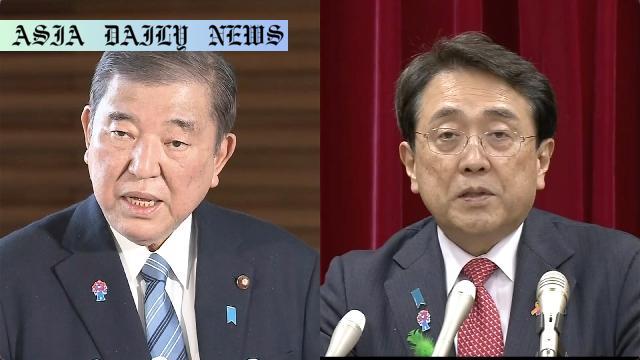Tariff talks mark a pivotal moment to strengthen Japan-US relations and seek favorable economic outcomes for both nations.

The Importance of Tariff Talks: Strengthening Japan-US Relations
The upcoming tariff negotiations between Japan and the United States underscore a critical juncture in international trade relations. Prime Minister Ishiba Shigeru’s focus on achieving a win-win solution illustrates a committed effort to foster cooperative economic and diplomatic ties between the two nations. With Japan’s economy facing pressure from US-imposed tariffs, these talks provide an opportunity to not only alleviate financial strain on Japanese companies but also solidify trust between two global economic giants.
Economic Revitalization Minister Akazawa Ryosei has been tasked with representing Japan’s interests during the three-day discussions in Washington. His primary aim is to negotiate a review of the tariff measures that have negatively impacted Japanese businesses. The stakes are high, as Japan grapples with the challenge of maintaining its economic standing amidst stringent US trade policies. This highlights the importance of diplomacy and strategic negotiation in pursuing a balanced resolution.
Examining Tariff Effects on Japanese Corporations
The imposition of tariffs by the United States, as stated by Minister Akazawa Ryosei, stems from national interest considerations. However, the resultant decline in profits for Japanese corporations points to the significant impact such measures have on global trade ecosystems. As companies bear the brunt of these policies, the urgency to find mutually beneficial solutions becomes all the more evident. Prime Minister Ishiba’s directive for Akazawa to build trust and explore all options offers a pathway toward easing tensions and paving the way for sustainable economic growth.
Minister Akazawa’s plan to submit a strong request underscores Japan’s proactive approach to addressing this issue. His acknowledgment of the complexities of negotiation reflects an understanding of the challenges ahead, yet holds promise for crafting a solution that respects the economic priorities of both nations.
A Strategic Vision for the Future of Trade
Prime Minister Ishiba’s leadership in this matter highlights the significance of forward-thinking policies and international collaboration. By emphasizing the need for a balanced approach, Japan aims to position itself as a nation committed to fair trade and economic cooperation. This not only serves to protect the interests of its own corporate sector but also strengthens its reputation as a reliable partner on the global stage.
As Minister Akazawa embarks on this critical mission, the outcome of his discussions with US officials, including Treasury Secretary Scott Bessent and Trade Representative Jamieson Greer, will likely set the tone for future trade negotiations between the two powerhouse economies. A successful resolution has the potential to foster improved relations, stabilize the financial landscape, and signal a collaborative approach to addressing global trade challenges.
Commentary
The High Stakes of Japan-US Tariff Talks
The Japan-US tariff negotiations mark a significant moment in international relations, offering insight into the challenges and opportunities of modern diplomacy. As both nations aim to balance domestic interests with the broader goal of global economic stability, these discussions will not only impact bilateral relations but also serve as a reference point for other countries navigating the complexities of trade.
From Japan’s perspective, the necessity to address the declining profits of its corporations highlights the tangible impact of policy decisions on economic performance. Tariffs, while often implemented to serve national interests, can inadvertently strain relations and create economic imbalances. This makes Prime Minister Ishiba Shigeru’s directive to pursue a mutually beneficial outcome all the more commendable. His emphasis on trust-building approaches showcases a commitment to fostering collaboration, even amidst challenging circumstances.
Minister Akazawa’s Critical Role
Economic Revitalization Minister Akazawa Ryosei faces a formidable task of representing Japan’s interests while navigating the complexities of US trade policies. His strong stance on advocating for a review of tariff measures reflects not only Japan’s priorities but also a broader call for fairness in trade relations. It will be fascinating to see how his strategic arguments and diplomatic finesse resonate with US officials.
The emphasis on exploring all possible options by Akazawa demonstrates a proactive mindset that is crucial for meaningful negotiations. His role is instrumental in ensuring that the three-day talks yield results conducive to long-term economic stability and mutual respect between the two nations. His success would undoubtedly enhance Japan’s position as a vital participant on the international stage.
Broader Implications for Global Trade
As the world watches these negotiations, their success or failure will send a powerful message about the complexities of international trade. A win-win resolution could inspire other countries to adopt collaborative approaches to address trade disputes. Conversely, a stalemate or one-sided outcome might exacerbate tensions and create ripples throughout global markets.
Ultimately, these talks represent more than just a bilateral discussion. They are an opportunity for Japan and the United States to set an example of how respectful negotiation can lead to mutually advantageous outcomes. One can only hope that both nations remain committed to their shared vision of economic prosperity, paving the way for a brighter, more interconnected future.


